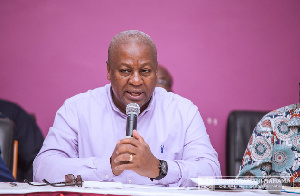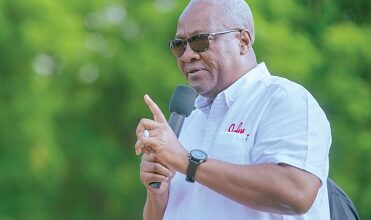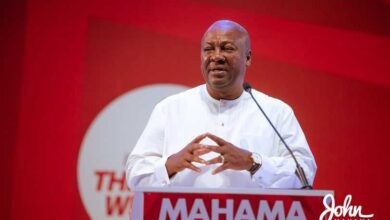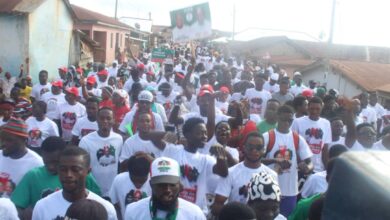
Ghana between 2012 and 2016 had to endure a four-year power crisis that led to a severe load shedding, job losses, and the collapse of businesses.
At a point when his government had steadily steered the country towards an easing of the power crisis, then President John Dramani Mahama on September 9, 2020, emphasised his commitment in bringing the infamous ‘Dumsor crisis’ to an end while stating he was not going to engage in a game of casting blames on anyone.
With just 3 months remaining to the 2016 presidential elections, President Mahama assured Ghanaians of his government’s commitment to ensuring energy security and a steady power supply.
President John Mahama has assured Ghanaians that he will not point accusing fingers at any group or individual concerning the challenges in the power sector but will ensure that it is resolved.
He said it is incumbent on him as the leader of the country to solve problems. As such, he will apply all measures to ensure that the country is energy sufficient.
“If you look at the energy sector, people keep talking about ‘dumsor’ but I will not blame anyone. I am the one who was voted as President of Ghana so I will confront it and fix it,” he indicated on Friday September 9 during a campaign tour at Winneba in the Central Region.
Although it is barely three months to the December 7 polls, Mr Mahama said he wants to “promise Ghanaians that very soon, we will enter into an era of energy security” as government has embarked on several measures to ensure availability of uninterrupted power.
President Mahama had earlier explained to Paul Adom-Otchere on Metro TV’s Good Evening Ghana programme on Tuesday September 7 that the commencement of work on the Tweneboa-Enyenra-Ntomme (TEN) fields in addition to expected generation from the Offshore Cape Three Points (OCTP) fields being operated by Italian energy firm Eni to complement gas production from Atuabo, more than 300 million standard cubic feet of the product is expected to be produced to generate power in excess of the country’s needs.
Ghana is coming out of a four-year crippling power crisis that led to a severe load management, job cuts and collapse of businesses.
However, with the situation easing since the beginning of 2016, President Mahama has said his administration is consolidating the gains made with the production of more gas for thermal power generation to usher the country into an era of energy security.
“With the TEN field, sometime next year we should see about another 70 million standard cubic feet of gas coming into Atuabo and then [by] end of 2017, the Eni field will start, and sometime in 2018 we should have 150 million standard cubic feet of gas.
“By end of 2017, we should be energy-sufficient. By end of 2018, we should have excess power to be able to export that power.”
According to him, Ghana’s “total subscription” in the West Africa Gas Pipeline is 120 million standard cubic feet, but with the Eni alone producing 150 million standard cubic feet, Ghana is going to get “much more gas than we have subscribed to… so, we’ll have enough gas to power our thermal plants. We’ll even still need additional gas if we can get it and so all the other work that is going on is important towards making sure that we have enough gas,” the president said.
Eni and TEN, Mr Mahama continued, will give a combined 300 million scf of gas which should “produce another 2000MW of power in addition to what we are producing already.”
Ghana is generating 2000MW of electricity, and the additional generation will take Ghana’s production of power to 4000MW, a figure President Mahama has said is “far more than Ghana needs.
”Source: www.ghanaweb.com




